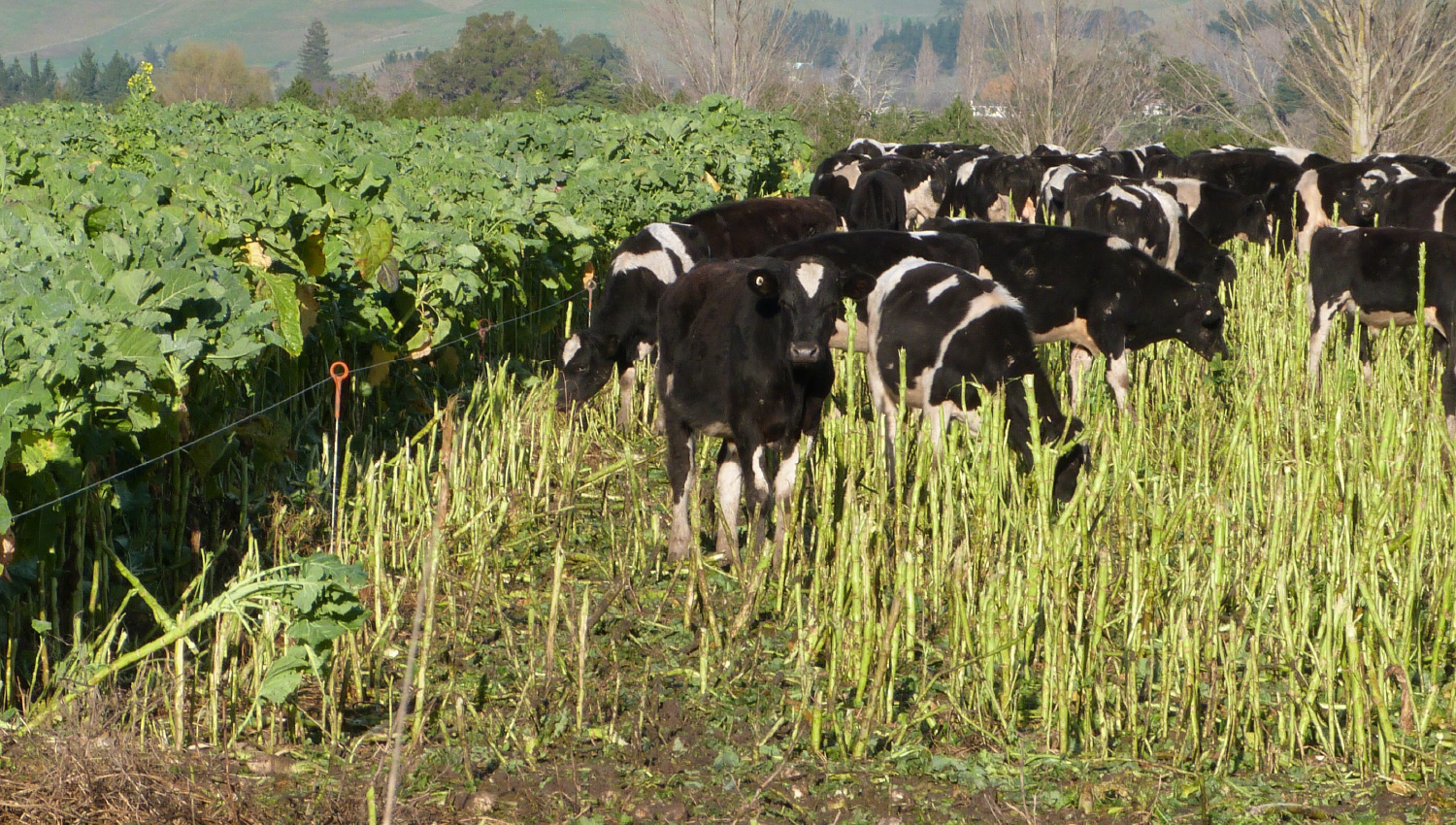If you need to practice intensive winter grazing (IWG), it’s important to plan ahead, ensure your approach meets the national legal requirements and follow the rules for our region.
Regulations to better control the impacts of intensive winter grazing took effect on 1 November 2022.
Further details can be found on this Ministry for the Environment factsheet.
Why were the regulations introduced?
These regulations are found in the National Environmental Standards for Freshwater 2020, and form part of the government’s essential freshwater package, which aims to protect and improve our rivers, streams, lakes, wetlands, and estuaries.
Poor management of livestock grazing on winter forage crops risks increased soil and nutrient loss, which can result in the degradation of freshwater ecosystems.
Getting IWG right will help you reduce nutrient and sediment run-off whilst supporting improved soil productivity and the welfare of your livestock.
Do they apply to me?
The regulations apply to the grazing of annual forage crops between 1 May and 30 September, starting from the 2023 season, on farms with:
- 5 hectares or more of horticulture land use, or
- 20 hectares or more of pastoral or arable land use, or
- 20 hectares or more of a combination of any of these land uses.
Can I continue winter grazing as I have in previous years?
The regulations are designed to limit the expansion winter grazing land. In practice, this means that, if you caried out IWG on your farm between 2014 and 2019 (the reference period), you can continue to do so providing the area you are farming is no greater than the maximum area used for IWG during that reference period, and you comply with the permitted activity requirements or have a certified freshwater farm plan in place.
What’s Waikato Regional Council’s preferred approach?
Moving forward, we believe freshwater farm plans will become the most appropriate tool for managing sources of contaminants that may have adverse effects on water quality.
They will help to streamline farm planning, enabling a more pragmatic, risk-based approach that better reflects local circumstances and builds on the great work that has already been done through farm planning to date.
From a compliance perspective, Waikato Regional Council typically takes a risk-based approach, focusing on those farming businesses whose poor practice is contributing to adverse environmental effects.
Where can I find out more about best practice?
We encourage farmers who carry out IWG as an existing part of their business to follow best practice by referring to this MPI IWG module.
The Ministry for the Environment has also produced the following technical guidance around pugging, groundcover, and critical source areas.
- An introduction to the intensive winter grazing guidance series
- pugging
- groundcovers
- critical source areas
This guidance is intended for farm advisors but may be of interest to farmers as it is intended to compliment farmer-focused Intensive Winter Grazing Module.






To ask for help or report a problem, contact us
Tell us how we can improve the information on this page. (optional)